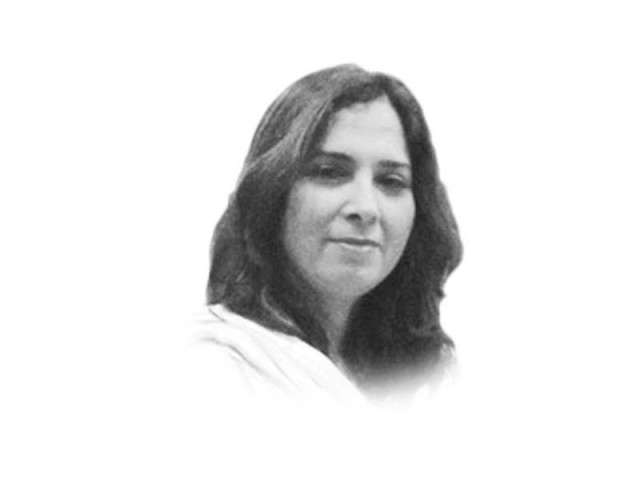Policy issues amid hysterical media coverage
Let media become pragmatic and give the country a chance to learn to sift the right from wrong

The writer is a journalist based in Lahore. She tweets @durdananajam
The nexus between terrorism and corruption had been identified — however, its linkages had not been severed. The identifier, in this case was Raheel Sharif and that he must not leave. After all, he was that good at what he did. His legacy is undeniably hard to reckon with and he left behind big shoes to fill. Towering against all the arguments was the fact that the righteousness of Raheel Sharif made him the most sought-after army chief in recent history. The chorus of the public and media remained that he must not leave. He was and is that loved — for the right reasons.
It is typical of the media that where the civilian leadership has not been able to regain its fallen chip, because renouncing corruption and sacrificing for the sake of the country are yet distinct qualities in politicians.
Democracy still means elections. It means regaining the power structure multiple times. Hence the nexus between elections and democracy needs preservation. Another reason why General Raheel will be missed? His absence in the elections of 2018. Though we hope his successor will be as efficient and reliable as he was.
One key expectation pinned on the new Chief of the Army Staff is that he would see to it that the elections of 2018 become one of the fairest in Pakistan. There is another hope laid on the Chief. He is asked to help the civilian government strengthen the institutions of the country. The new chief would be expected to have one eye on the border, for the protection of which he and the rest of the forces have been hired, and one on the civilian system to see that the water does not get muddied while the guards are playing the tune of their choice on Nero’s flute.
The hysteria that had engulfed the media during the exit of the old and the arrival of the new army chief had been appalling. Ad nauseam at times, to say the least. The change of command ceremony splashed across the media. Only if a holiday were declared it would have given the national day feeling. Unless the civilian leadership mend its ways and says a goodbye to bad governance, both morally and financially, the army would remain in the lead. Are we seeing this happening anytime sooner? Not really.
One wondered how it would have unfolded had media discussed policy issues rather than melding into speculations and trying to make conspiracies sound sensible. Could it be, if the media, fulfilling its role of educating and informing its audience, discussed the best among the contenders in the race for Army Chief, we might not have Bajwa as the next Army Chief? All said and done, it’s the media’s responsibility to rightfully inform viewers and not downplay anybody. The viewers demand facts.
Till the time the government finds its footing and becomes dynamic and less corrupt, let media become pragmatic and give the country a chance to learn to sift the right from wrong. Not a big toll. We’re just asking for ethics — and it’s not too much to ask for?
In the meantime, we wish General Bajwa all the very best and hope he lives up to his predecessor. We have high hopes for the man and believe he has the potential Pakistan is in dire need of.
Published in The Express Tribune, December 7th, 2016.
Like Opinion & Editorial on Facebook, follow @ETOpEd on Twitter to receive all updates on all our daily pieces.














COMMENTS
Comments are moderated and generally will be posted if they are on-topic and not abusive.
For more information, please see our Comments FAQ